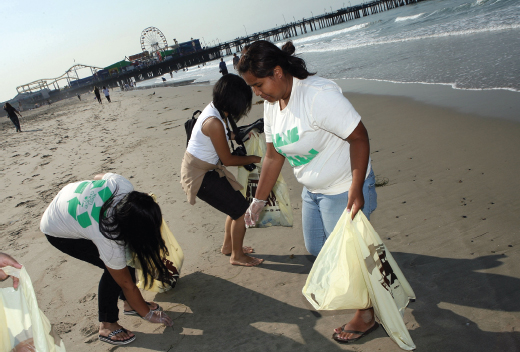Assessing the Results

Once a group has implemented its agreed-
- Was the beach cleaner at the end of the day as a result of the group’s efforts? Before-
and- after photos of the beach reveal a very successful cleanup. - Did the event wind up costing the members any money? Thanks to the donations of local restaurants and supplies provided by the county sanitation department, along with free advertising via social networks, the event cost the group absolutely nothing.
- Did the event attract volunteers from outside the group? Fifteen nonmembers participated in the cleanup, among them several schoolchildren who attended with their parents.
By revisiting these criteria, the group is able to tweak its plan for the following month’s cleanup event. Larissa suggests that the members pitch in a few dollars to place an ad in the local paper thanking the volunteers and donors and announcing the date of the next cleanup. Wade follows up by suggesting that the group make a pitch at the nearby schools to get more local families involved. Kathryn volunteers to submit a brief story about the cleanup, along with photos of the event and the results, to the campus newspaper. And Susan suggests holding a raffle at the next event, with half the proceeds paid out in prizes and half retained by the group, to get a small budget started to cover future ads and expenses.
AND YOU?
Question
Consider the six steps to problem solving we’ve just discussed. If Susan, the leader of EcoCrew, had chosen a different leadership style, would this have affected how the problem-